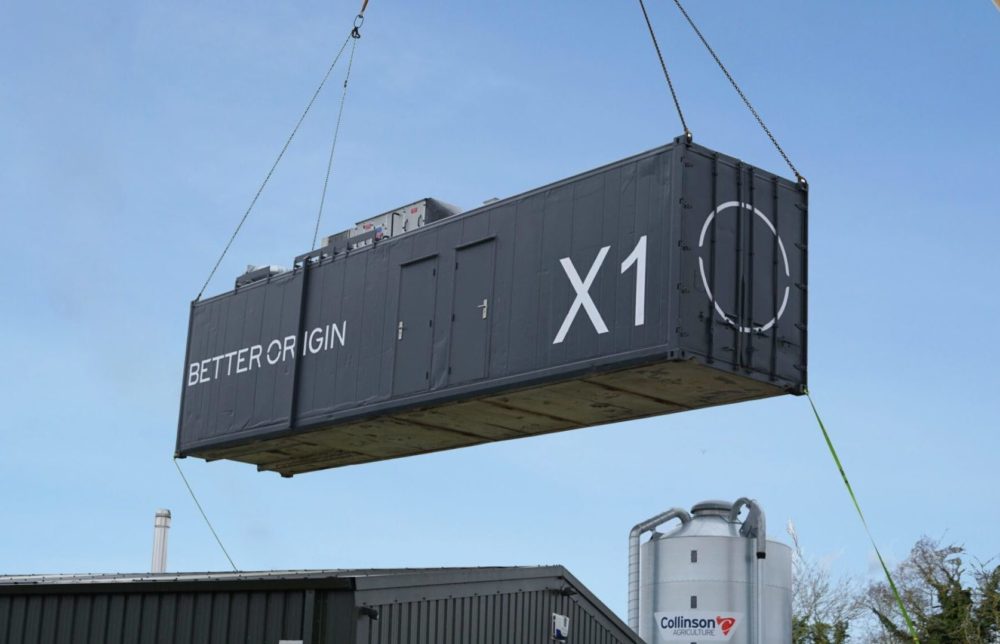Better Origin, a UK startup that builds insect farms to upcycle food waste into feed for egg-laying hens, has raised $16 million in fresh funding.
- The Series A round was led by London-based VC firm Balderton Capital. Other participating investors included Berlin’s Fly Ventures and Athens-based Metavallon VC.
- It takes Better Origin’s total funding to date to $19 million.
- Co-founder and CEO Fotis Fotiadis told AFN that the funding will be used to expand the startup’s team and scale its solution internationally. “We’re currently in the UK, exploring expansion into Europe, and aim to pilot into a couple of new countries this year,” he said.
How it works:
Founded in 2015, Better Origin builds AI-powered insect “mini-farms” in shipping containers, which egg farmers can deploy on-site to upcycle agrifood waste into animal feed.
- The Cambridge-based startup says its X1 mini-farms “recreate the conditions found in nature where food is eaten by insects and upcycled into essential nutrients for other animals,” and use “AI and automation to create the optimal environment for this cycle to flourish.”
- Each X1 is able to convert organic waste — for example, expired and unwanted food from local supermarkets — into feedstock for the thousands of black soldier fly larvae that they host.
- Cameras and sensors monitor the larvae’s development as they grow within the X1. Better Origin’s AI uses data collected from these sources to optimize rearing conditions, as well as protein and fat yields.
- The larvae can then be fed to animals, providing an inexpensive, sustainable, and healthy source of nutrition for livestock.
- Better Origin handles the entire process end-to-end, charging farmers a monthly service fee. “We offer this service to ‘close the loop,'” Fotiadis said. “The farmer doesn’t need to do anything [except] put waste in, and harvest the insects when they’re ready.”
Why it matters:
Better Origin claims that its solution is able to cut greenhouse gas (GHG) emissions and enhance overall food security in several ways.
- In 1 square meter, the Better Origin X1 can supposedly produce the same amount of animal feed as 1,500 square meters of open-field soy cultivation – and with barely any of the inputs required for the latter.
- Rather, it uses unwanted or expired food products as its main input, thereby reducing food waste and related emissions.
- By enabling the production of animal feed on-site, Better Origin’s mini-farms reduce the need for long-distance feed shipments, cutting costs overall.
- Using black soldier fly larvae as feed allows farm animals to forage for unprocessed, live food — just as they might in nature — rather than being fed highly-processed food pellets.
- “We’re just completing studies with various stakeholders on how to quantify and measure [impact, both on the] waste-handling element — what emissions do we save by diverting from landfill, for example — and on the backend; if we feed larvae and take out soy, what [that does] to the supply chain of the farm,” Fotiadis said.
This is a developing story. Please check back for updates.




